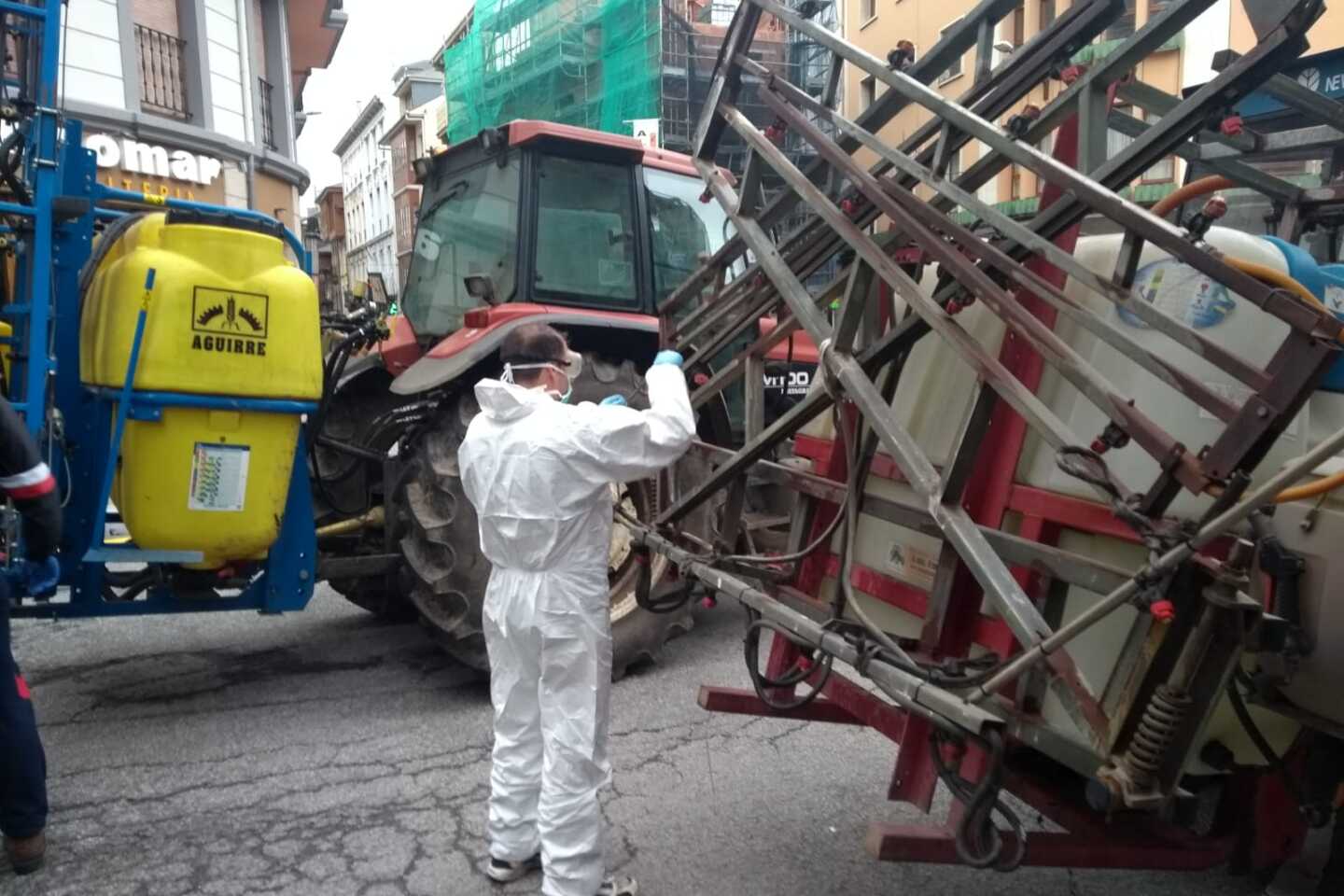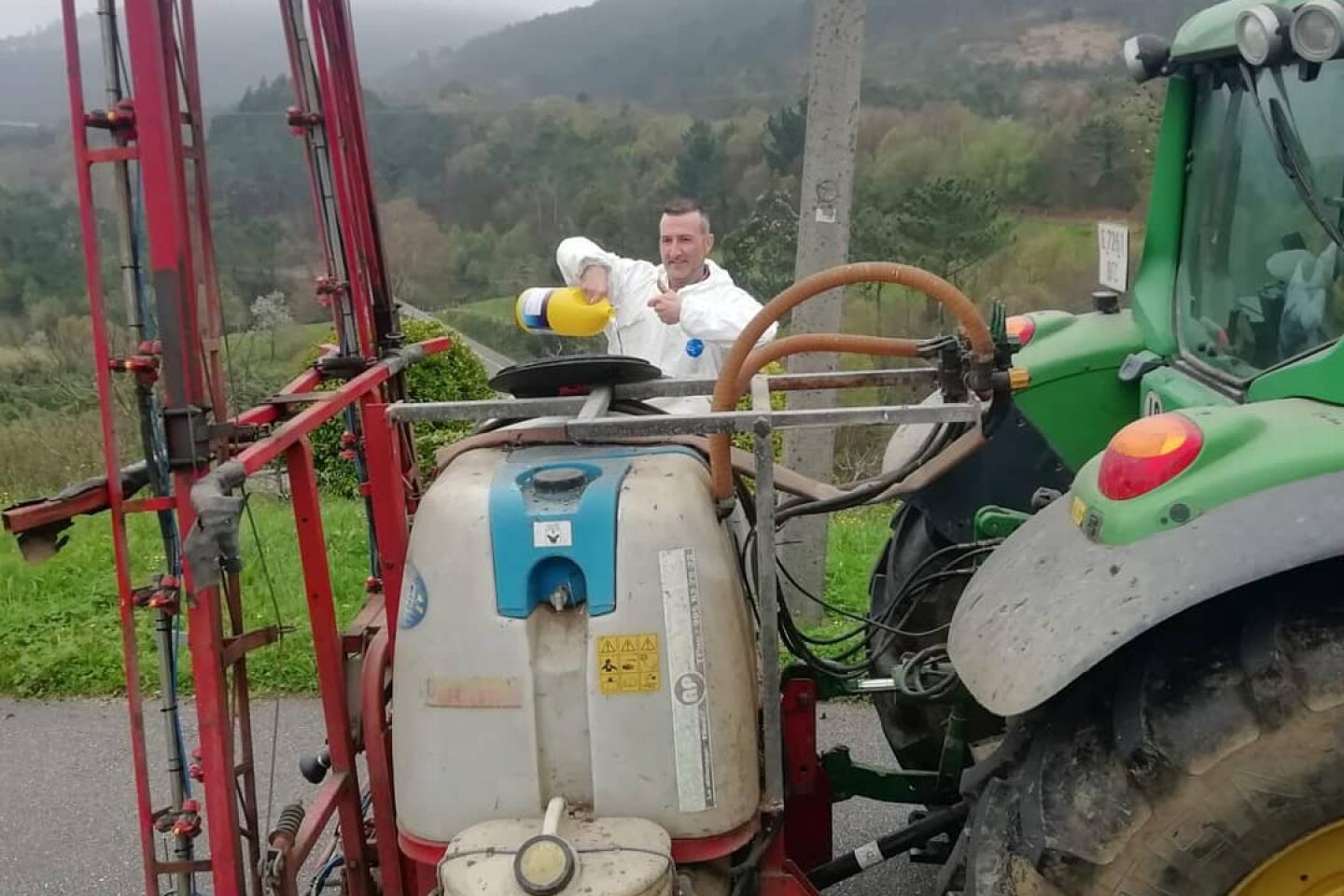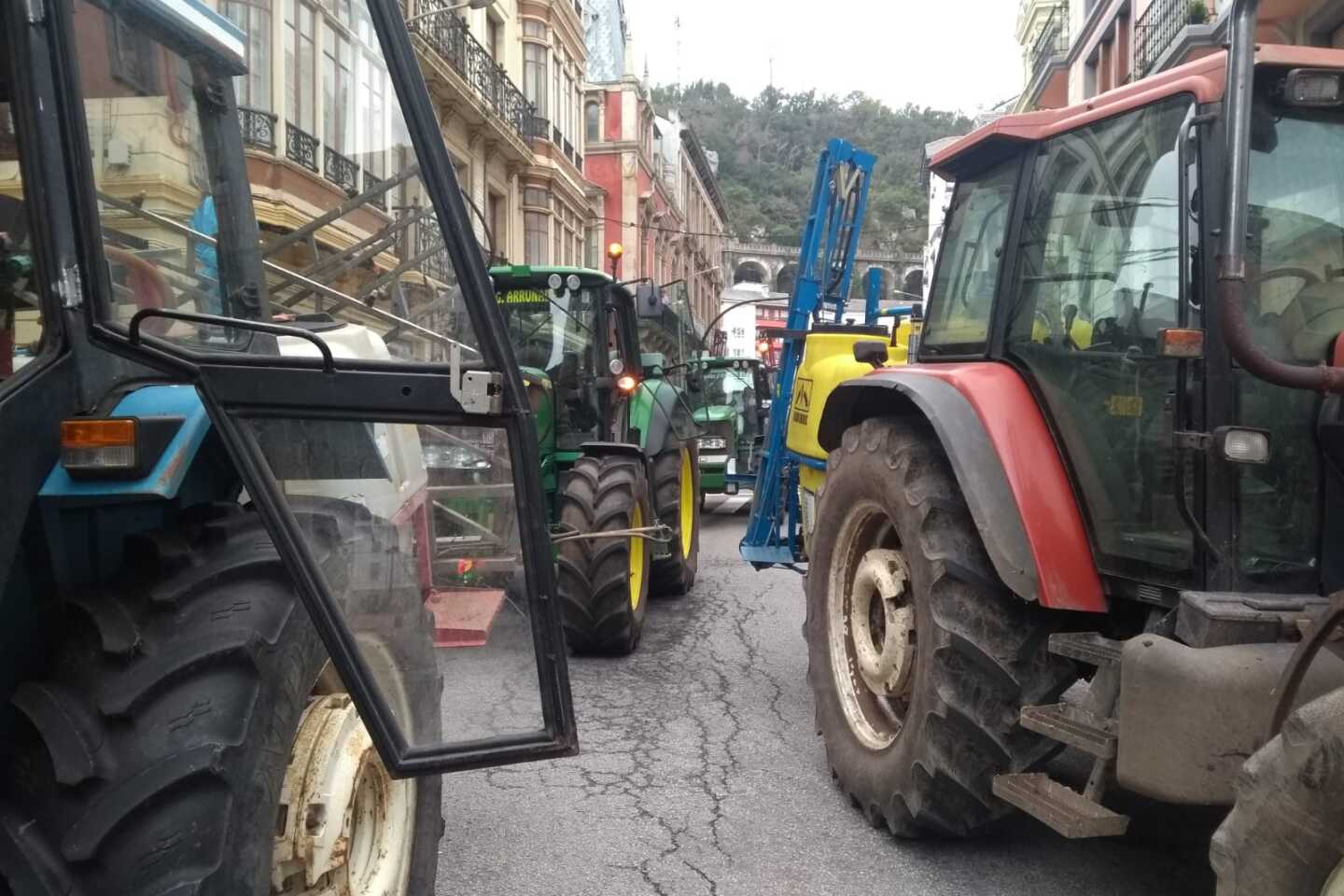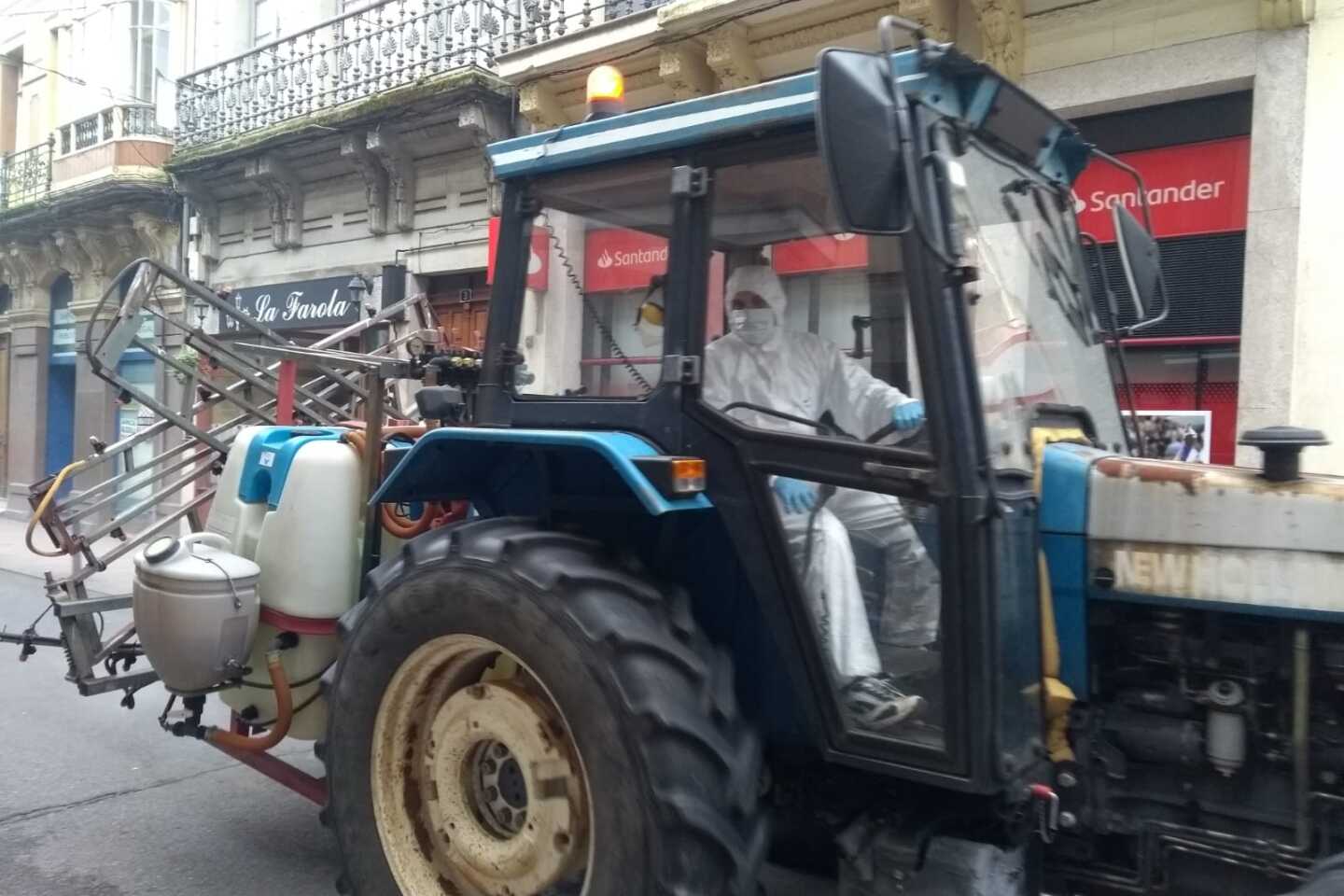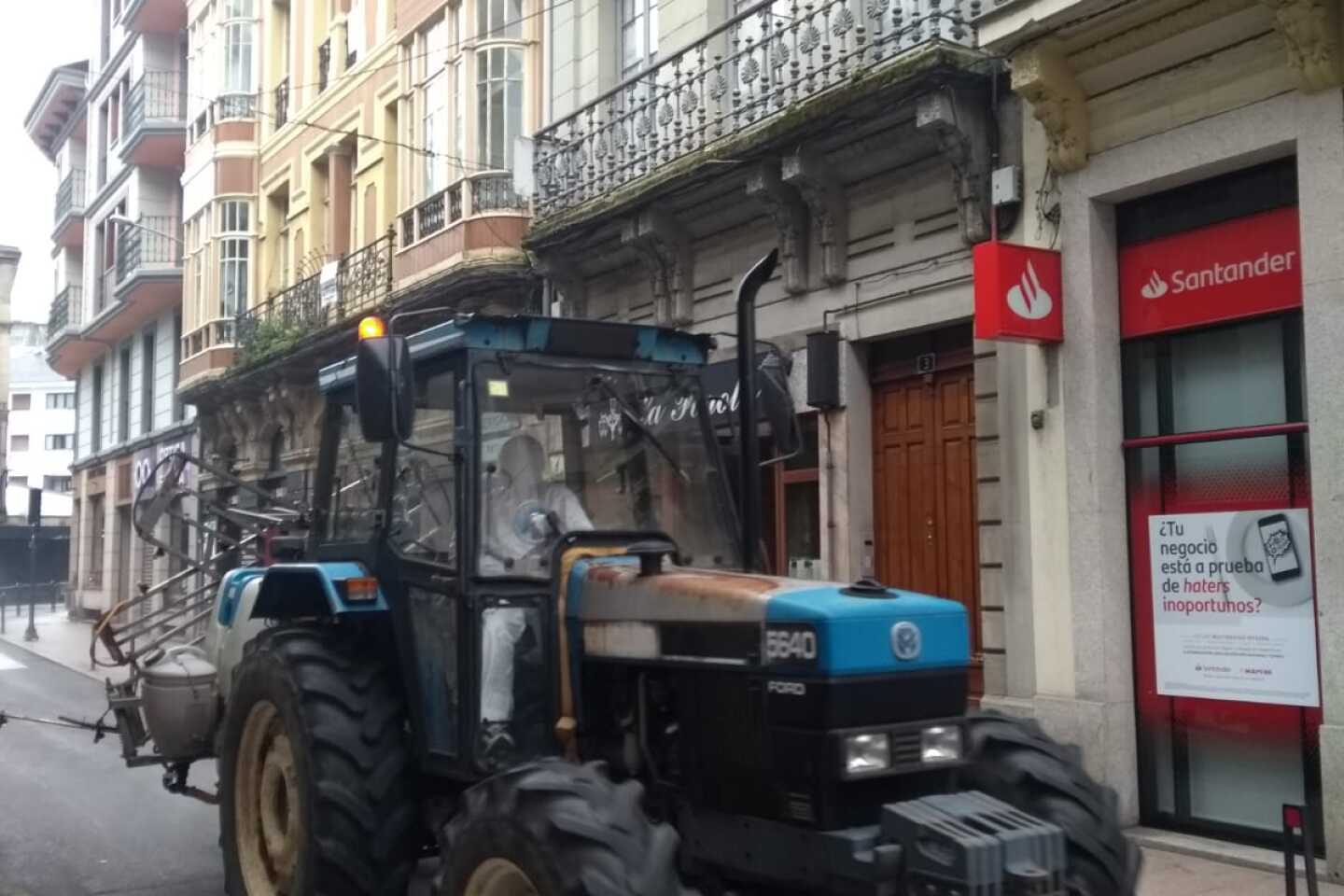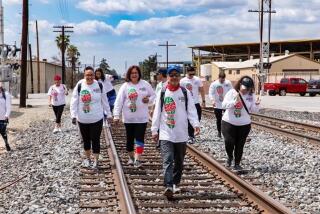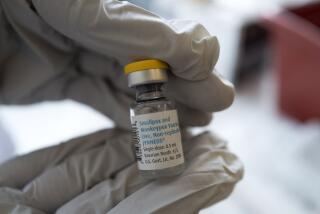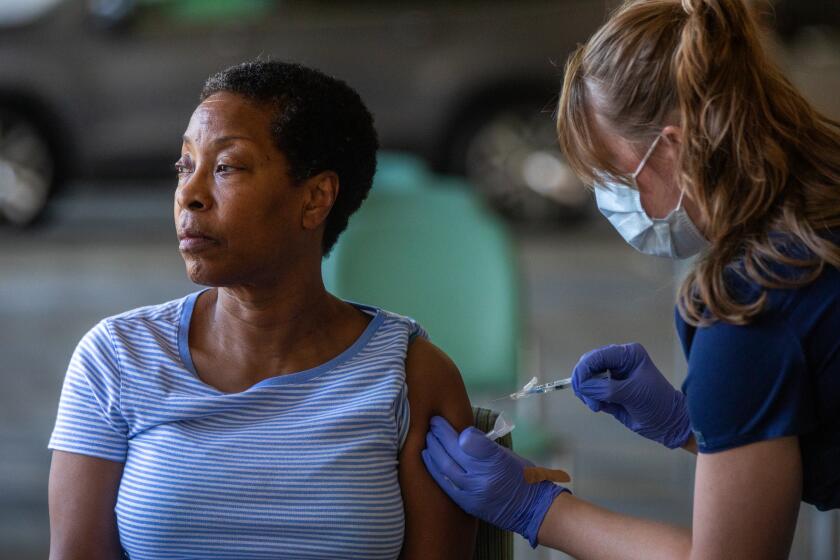On the front line of the coronavirus threat in Spain, tractors scatter the streets with hope
More than 700 dead in a single day.
Fermín Menéndez repeated the figure over and over again, as if to convince himself that it was real. He found it hard to believe that the coronavirus crisis had reached such numbers in Spain.
“Let’s get rid of the bug,” Menéndez, 40, one of a group of farmers in Spain who volunteer to drive their tractors loaded with disinfectant through villages and towns to help fight the virus, said this week.
People with backpacks loaded with liquid disinfectant are sent where tractors cannot reach. All are country people, and none are paid for their work. The disinfections began March 15, after officials announced a state of alert that placed 47.1 million people in Spain in confinement.
Spanish officials said as of Friday the coronavirus had killed more than 4,850 people in the nation and infected more than 64,100. Officials had said Wednesday that 738 new deaths recorded that day had pushed Spain past China, where the coronavirus began, in total deaths.

Wearing masks, gloves and white suits, the farmers prepare themselves and take their own precautions to avoid falling victim to the coronavirus. The image of these Spanish peasants is almost identical to the scenes that, just a few weeks ago, were broadcast from China with people spraying the subway cars, shops and streets.
In Spain, the countryside faces unique challenges in the face of the pandemic. Rural communities are the oldest in the country, where nearly 30 out of every 100 inhabitants residing in the 5,872 rural municipalities are over the age of 65.
“There is a totally inverted population pyramid. There are many more elderly people than young people, and life expectancy is among the highest in the world. That in itself has its own repercussions,” says Emilio García, mayor of Parres, one of the 78 councils in Asturias, the region where Menéndez and the other volunteers in his group operate.
Asturias, in northern Spain, had recorded at least 29 deaths and more than 900 people infected as of Friday. It is the region with the highest percentage of people 65 and over in Spain, according to the Department of Population of the Spanish National Research Council.
In addition to his duties as mayor, García has made many phone calls to the elderly.
“The fear is great; all these people feel in the front line. We try to take care of them as much as possible, but the anxiety, fear and questions increase,” said García, who implemented the Count on Me program to assist the elderly with basic tasks.
The silence that seems to invade everything is broken when Menéndez and his companions arrive to fumigate the streets. The thunderous sound of tractors and the bleach that falls on the sidewalks, the banks, the shops, is received by the neighbors as a shower of hope in these villages.
On Menéndez’s radio, a Roy Orbison song plays: Anything you want, you got it. Anything you need, you got it. Anything at all, you got it. Baby...
The tune cheers up his soul, but not as much as the applause of the neighbors who are grateful for the disinfection work.
Lucia Velasco, who founded Ganaderas Asturianas, an organization that started as a WhatsApp group and is now an association with more than 130 female farmers, said some issues related to the business of farming have been set aside for now.
“Now our main concern is to get out of this nightmare,” Velasco said.
Throughout Spain, hundreds of farmers and tractors are fighting against COVID-19. The Emergency Military Unit has trained farmers of the province of León on how to use their tractors for massive disinfection work in the villages, thus unloading the enormous work of the soldiers of this specialized army unit onto the farmers. In Extremadura, farmers from Merida have volunteered to disinfect the streets of the city.
Menéndez his colleagues on Wednesday sprayed about 10,000 liters of disinfectant — water with 2% bleach. With the work of disinfecting the streets, a new crisis has emerged: a severe lack of bleach.
The neighbors have faced the shortage in a supportive manner. One, two, three liters, the residents of the villages reach out to the farmers with what they have in their homes and donate it so that they can continue their work.
Because of the pandemic, the days are exhausting in hospitals, in nursing homes, but also in the countryside. The volunteers’ days are extended to more than five hours disinfecting communities, and after that almost everyone returns to their daily tasks: milking their cows and preparing food for the cattle.
The fatigue is already too much. Almost at midnight one day, Menéndez turned off his tractor. In a couple of days, he would return to the villages to disinfect again.
More to Read
Start your day right
Sign up for Essential California for news, features and recommendations from the L.A. Times and beyond in your inbox six days a week.
You may occasionally receive promotional content from the Los Angeles Times.
